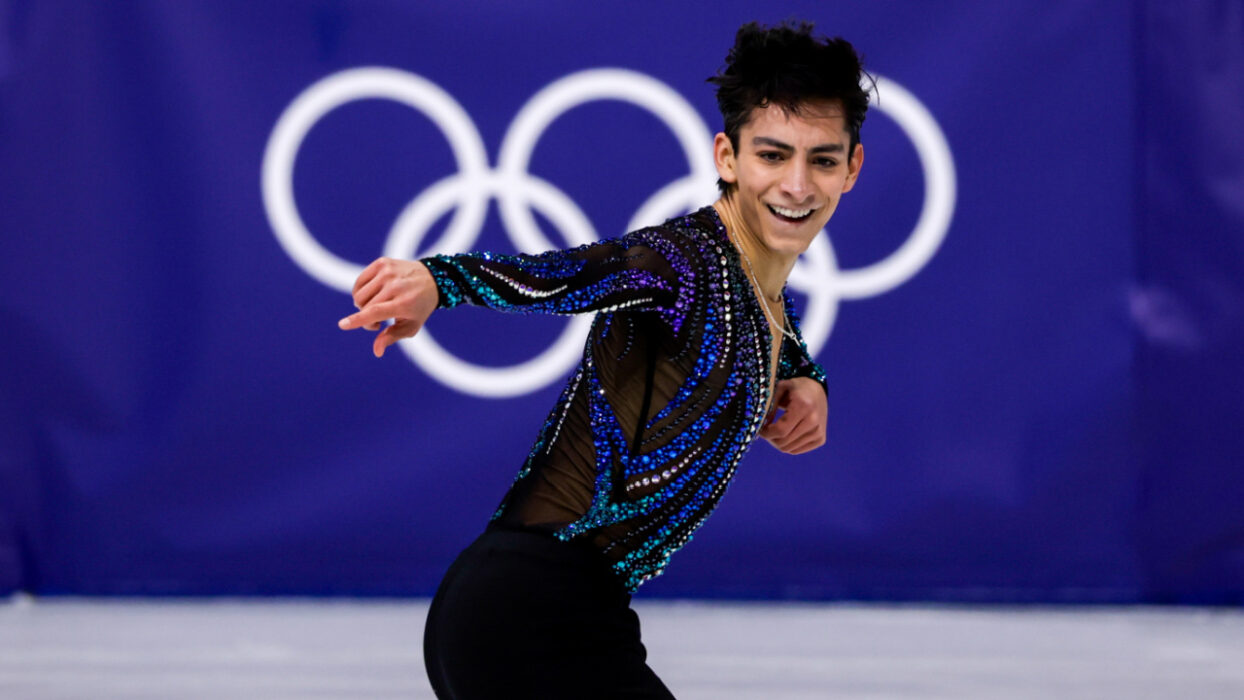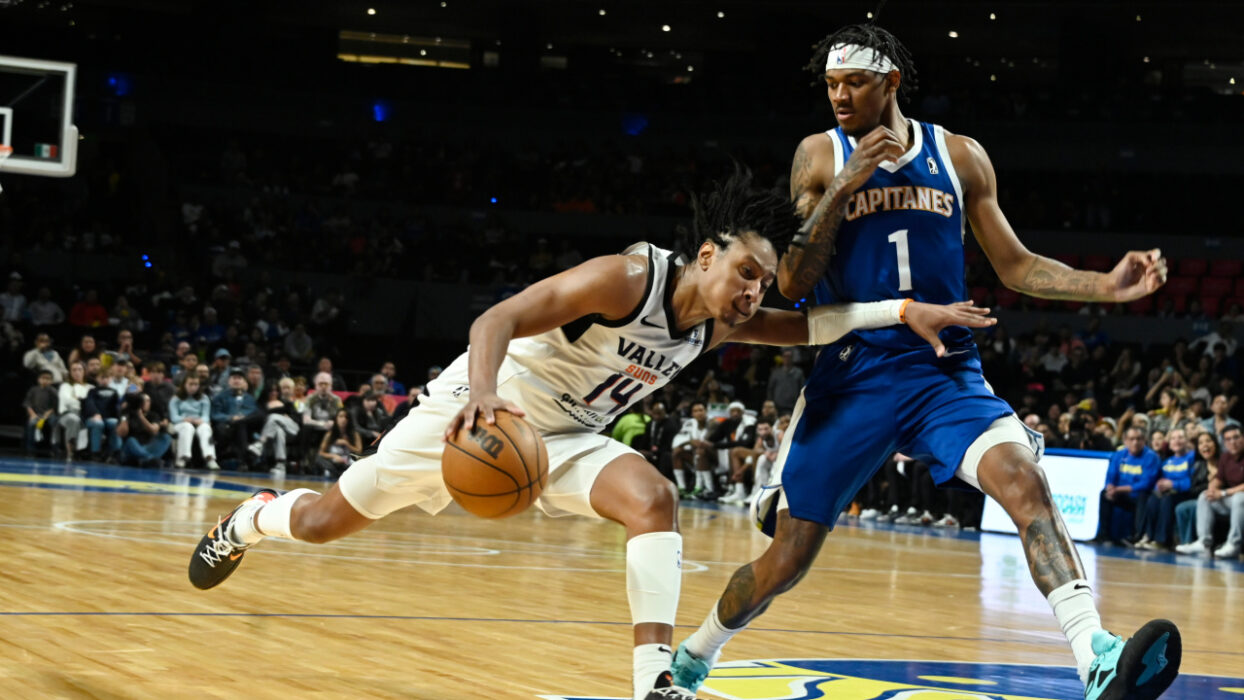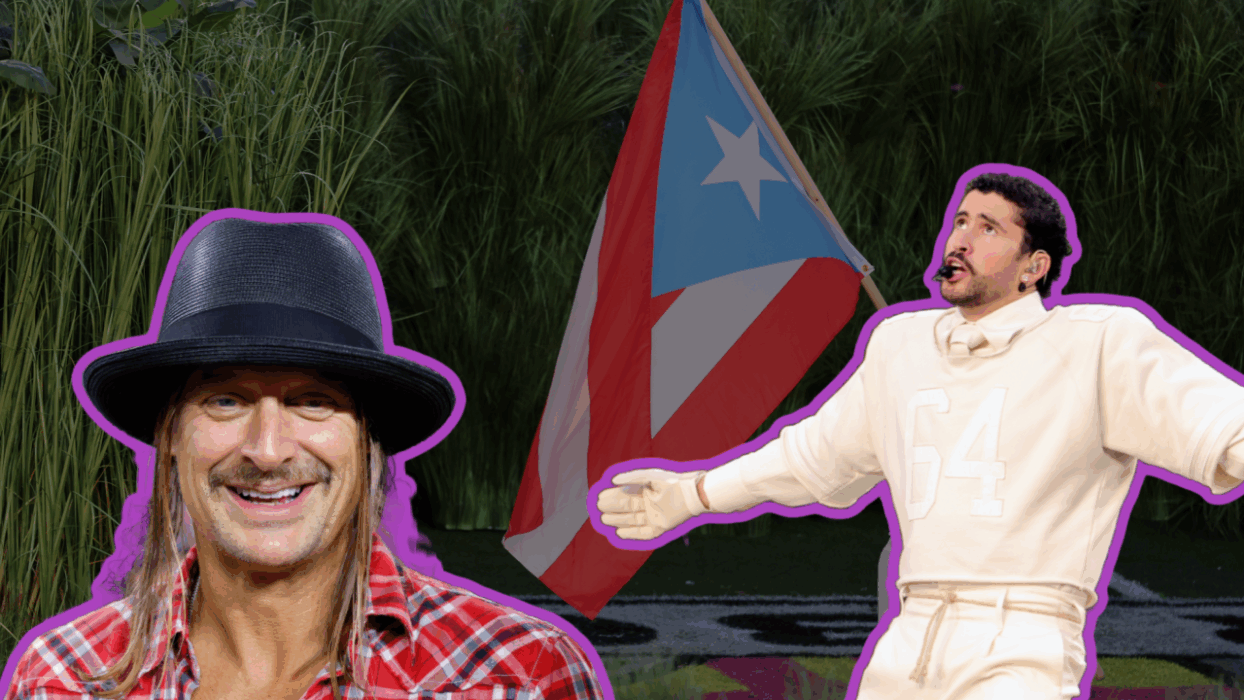
Bad Bunny Says He ‘Owes’ His Success to ‘Hardworking Latinos Who Have Helped Make the Country What It Is Today’
At this point, the only way to describe Bad Bunny’s success is that it’s like looking out at the vastness of the world and wondering where the horizon ends. Everything the 28-year-old Puerto Rican artist does seems to only catapult him onto a new plateau of acclaim, like the King Midas of reggeatón.
Over the last few months, Bad Bunny, whose real name is Benito Antonio Martínez Ocasio, has taken time for more interviews that have tried to boil his success down to some kind of strategy, or at least an explainable phenomenon, but the nature of his global popularity continues to have an ineffable quality.
All anyone really knows is that they can’t get enough of Bad Bunny. Where many artists, in any industry, bury their true selves more and more as they become more successful, the only tangible quality of Bad Bunny’s success is his authenticity.
Talking to Harper’s Bazaar, he says. “Obviously, as you get older, you start seeing what the world shows you, and if I lived my life that way, then I wouldn’t be able to dress in the way that I really want to,” adding, “To a point, the fame and where I am gives me the confidence to do all of these things.”
That authenticity has made room for another quality of Bad Bunny’s success: versatility. The artist can be heard crooning, rapping and ad-libbing in almost any genre, his varied and musically impressive albums often run more than 20 tracks and feel like a playlist at a party more so than the work of any one artist.
Cardi B, who collaborated with Bad Bunny on 2018’s “I Like It” alongside J Balvin, said, “The fact that such a big artist like him can transition into trap, to salsa, to merengue, to any beat and genre that he wants to do… there’s so many different genres of music out there, and yet the No. 1 artist on Spotify is motherf—ing Bad Bunny.”
For Bad Bunny, the authenticity is what keeps him sane. As an artist’s visibility grows, so do the demands to meet their expectations and give them what they want. Bad Bunny, on the other hand, is using that visibility to introduce the world to his truest self, even if it means possibly alienating the fans that made him famous.
Following a quote where Cardi B characterizes some of the Latino community as “homophobic,” Bad Bunny, who noted that women’s clothes “always fit me so much better” in an earlier part of the interview, comments on his decision to wear women’s clothing and dress the way that makes him feel comfortable.
“I’m taking advantage of this moment in my life when I can do whatever I want and wear what I want, so I get to live life more authentically,” he said. “I don’t do it to become more famous or to call attention or to disrespect anyone. People on the outside can think that I have a strategy or I wear this to call for attention, but in reality I just know who I am.”
Bad Bunny’s decision to reject his initial persona, which fell more comfortably within the realms of traditional machismo, knows that his truest self keeps him tethered to reality and focused on what’s important. “Maybe at the very beginning of my career, I tried to pretend I was someone that I’m not, but I learned that that’s the way artists lose themselves,” he told Harper’s Bazaar. “It’s because they forgot about themselves — them as a person — and invented a fictitious personality.”
Still, Bad Bunny is sure to shout out the audience that made him famous, the people who believed in his music enough to try and share it with the world. He said, “At the end of the day, my success in the United States I owe to the hardworking Latinos who have helped make the country what it is today.”
He continues, “I highly doubt the type of gringos I don’t fuck with listen to me. Those were all the people at the Super Bowl who were pissed off about how Latino the halftime show was.” Later, he notes that his success is, “for more than just myself, but also for the fans and for all of the Latinos in the world.”




